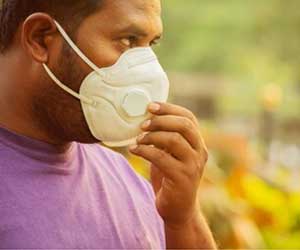The data was analyzed from 1,177 smokers and previous smokers with COPD in USA and it showed that after two days of increase in temperature there was an increase in COPD exacerbations. For every one degree Celsius temperature increase the symptoms of COPD worsened by 2%. The main aim of the study was to focus on the connection between temperature increase and COPD risk.
‘For every one degree Celsius increase temperature the symptoms of COPD worsened by 2%.’
According to researchers “Other studies have shown a connection between extreme heat exposure and increased risk of health problems and death in people with COPD. There are concerns that these problems will accelerate with the ongoing and worsening climate crisis. Therefore, it is important to quantify the health risks associated with changes in ambient temperature, while also determining who is most at risk to inform policy-makers and healthcare providers.”
The average age of participants involved in the study were 64 years of age and the symptoms worsened after two days from temperature increase. The patients with COPD should avoid adverse climatic conditions, limit outdoor activities and use indoor-cooling methods. Elders should adjust the body temperature by maintaining hydration.
How Temperature Increase Affects COPD Patients
Heat might cause hyperventilation which increases the possibility of dynamic hyperinflation (person cannot exhale completely before inhaling again) and this leads to breathlessness. Increase dynamic hyperinflation increases pressure in the chest cavity and decreases the blood flow back to the heart. Other studies have shown that breathing hot air causes constriction of the airways.
“The climate emergency is proving to have far-reaching effects in areas of everyday life where it might not necessarily be expected to have an impact. This study offers a fascinating insight into the way it could be affecting the lives of people living with COPD and is yet more proof of the urgent need to tackle climate change and the world’s rising temperatures.” Says Zorana J. Andersen at the European Respiratory Society .
Source: Medindia



